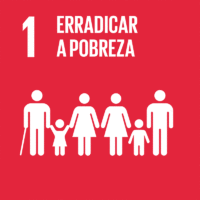Ciência_Iscte
Publicações
Descrição Detalhada da Publicação
Food insecurity and social determinants of health among immigrants and natives in Portugal
Título Revista
Food Security
Ano (publicação definitiva)
2020
Língua
Inglês
País
Reino Unido
Mais Informação
Web of Science®
Scopus
Google Scholar
Abstract/Resumo
Literature is scarce on food insecurity in the context of different illnesses and intersecting social hierarchies of gender and ethnicity. This study aims to describe and compare the prevalence of food insecurity between immigrants and natives in Portugal and explore social determinants of poor health outcomes associated with food insecurity. Data were derived from the National Food, Nutrition and Physical Activity Survey 2015–2016, which is a national and regionally representative survey of the Portuguese general population which collected nationwide data on dietary habits (including food insecurity measured by the Radimer/Cornell food security questionnaire) and physical activity, among other dimensions. Demographic, socioeconomic and health factors that could help explain ethnic disparities in food insecurity were explored through complex survey data analysis. The prevalence of food insecurity was 10.7% (95% CI: 6.5–15.0) among immigrants and 10.1% (95% CI: 8.3–11.9) among natives; no significant differences were found. Low family income and low level of education were the main factors associated with food insecurity in Portugal, in both native and immigrant groups. Self-reported diseases and poor self-rated health were also associated with food insecurity. Only among natives, women, older and unmarried subjects had higher food insecurity. Therefore, inter-sectoral policies addressing the social determinants of food insecurity are needed to reduce social inequalities and particular attention should be given for Portuguese women, elderly and unmarried people which are the most vulnerable groups. Promoting equality in household food and nutrition security in Portugal including among immigrant’s populations is a public health priority.
Agradecimentos/Acknowledgements
--
Palavras-chave
Food insecurity,Social determinants of health,Immigrant health,Portugal
Classificação Fields of Science and Technology
- Ciências da Saúde - Ciências Médicas
- Sociologia - Ciências Sociais
Contribuições para os Objetivos do Desenvolvimento Sustentável das Nações Unidas
Com o objetivo de aumentar a investigação direcionada para o cumprimento dos Objetivos do Desenvolvimento Sustentável para 2030 das Nações Unidas, é disponibilizada no Ciência_Iscte a possibilidade de associação, quando aplicável, dos artigos científicos aos Objetivos do Desenvolvimento Sustentável. Estes são os Objetivos do Desenvolvimento Sustentável identificados pelo(s) autor(es) para esta publicação. Para uma informação detalhada dos Objetivos do Desenvolvimento Sustentável, clique aqui.

 English
English




